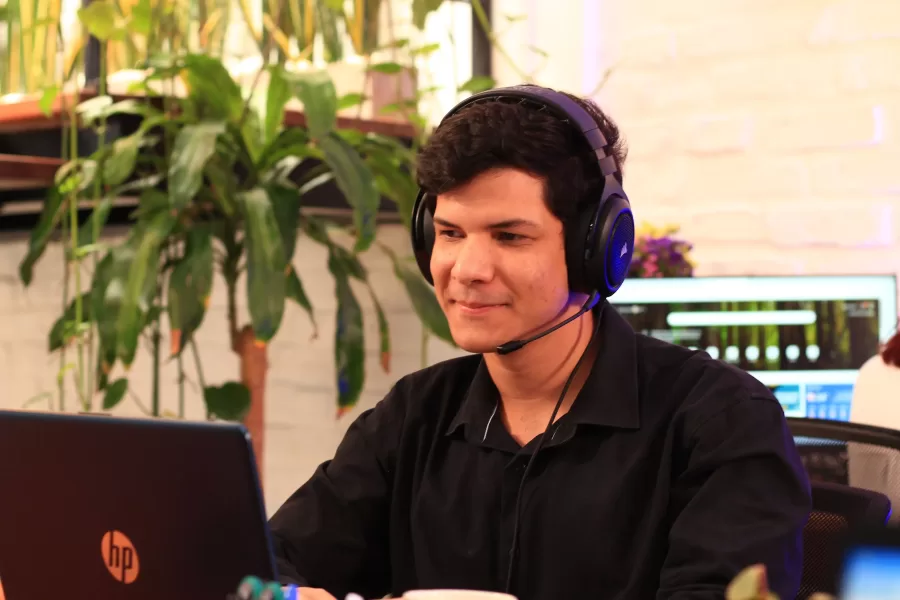When it comes to what is necessary to become the most excellent version of ourselves, the answer might be diverse, but whatever that is, it cannot be achieved without being aware of ourselves. Just think about it: trying to improve without consciousness is like trying to learn without memory… nearly impossible, to say the least.
We talk about awareness in casual conversations with our colleagues. We talk about the climatic, economic, political, and social issues we must know about. This concept is not outside our daily lives, but do we know how to apply it to ourselves? And if so, how can we be sure we are identifying everything correctly? Can we trust our perception of ourselves? Is that what it is about?
And many more unanswered questions can come a long way if we let them run wild… But let’s get down to business and clear this out.
What Does It Mean To Be Self-aware?
Self-awareness can be seen as a skill that can be cultivated, developed, and improved. An excellent way to define it is the ability to focus on ourselves, our actions, thoughts, emotions, and the way we experience our individuality. It can be the capacity to see ourselves objectively, putting our biases aside.
An important detail to understand self-awareness is not to confuse it with the sensation on the first day of work when we might be too focused on our every move so we don’t make a mess or embarrass ourselves. Being self-aware is not the same as feeling self-conscious.
Being self-aware shouldn’t make you feel paralyzed. On the contrary, it can be a tool to get to know yourself in a way that promotes practical actions for you and your environment.
When understanding this concept, you could consider what Tasha Eurich discusses in her HBR article. She mentions two categories that we could say are the components of self-awareness. They are the two sides of the coin.
Internal self-awareness

This aspect can be viewed as the capacity to rotate the lens inward and see and interpret clearly what lies within.
Quoting Eurich, “It represents how we see our values, passions, aspirations, fit with our environment, reactions (including thoughts, feelings, behaviors, strengths, and weaknesses), and impact on others.”
It is not only knowledge that deciphers how I feel or how I am emotionally intelligent. It is about knowing who you are, what your limitations are, what you want, and how you want to get it.
Think of it this way: if you know your aspirations, you will look for jobs that align with or get you closer to those long-term career goals. Once you are focused, every step becomes meaningful, and every decision has a purpose.
And big or small that purpose or the impact that the action could have on it might be, you will feel more satisfied with what you’re doing. Even having a transitory job won’t be a burden because you have a clear north and know the role that it is playing in getting there.
This must be balanced out a little; we can’t get drowned in a sea of thought and self. Being internally aware is necessary, but don’t get comfortable in the introspective corner; go out and challenge those beliefs, dare to dream big, and discuss your thoughts with other people.
Having that feedback from the outside world will only nourish your points of view and reduce your blind spots.
External Self-awareness

As paradoxical as it may sound, there is an external component of self-awareness: the sense of understanding how we are viewed by others.
This can be based on our aspirations, behaviors, and how we fit in specific environments, as well as everything else we should analyze regarding the internal component.
But does it matter to know how we are perceived? Isn’t it more important to know it for ourselves? The short answer is no.
But, to be more specific, when we are capable of noticing how others see us, we are more empathic and have better relationships. People treat us about how they see us. When you know that perception, you can better work with their expectations of you.
For example, if you seek feedback and your managers see you as someone driven and compromised, you might value that and use it as fuel to keep it up. We are social beings who work together to make better results, so finding the support system you need to become more self-aware within your team is the best path.
The Real Question
We must reflect and ask ourselves tough questions to get to know ourselves. But how can we guarantee that we effectively find answers within ourselves and do not reinforce what we want to believe? This happens more often than we might think.
Do we start asking why I rejected this offer? And elaborate on the many reasons that make it the best choice, which might have been, but for other non-biased reasons.
And if we want to look within without falling into that loop, how can we be more objective? The solution might sound simple but miraculous: change why for what.
Instead of looking for reasons, you will look at facts you can analyze better. Switch the question to What were the pros and cons of that offer? What am I doing to be closer to my goal? What can I improve to be closer to it? What am I doing that is working? Asking what will drive you into a solution-oriented mindset will be a game changer.
How To Boost Both Sides Of Self-awareness

After learning what it is, how it works, and what might be effective, you might find it easier to identify where to work on it.
There are many ways to improve your skills, but we recommend the following steps. Feel free to adapt them as you need to make them your own.
Meditate As You Can
We all know that sometimes, and for some people, mindfulness isn’t enough, so we recommend this other article.
Meditation is a great way to connect with yourself; you can focus on breathing and let your thoughts flow as naturally and freely as a river.
By meditating, we become more familiar with our thinking patterns and learn to listen to our inner dialog differently. Because, let’s be honest, we hear our voices so often that we become numb to them. We stop paying attention to what they say, and that can bring about other problems.
You know yourself enough to see if you can make a technique work. It’s not like you all need to do yoga or Zen meditation, but the important thing here is that you make a space within your day to connect to yourself and be present with yourself and your inner world.
To some people, this meditation moment can be when they are taking a shower, for others could be that half hour that they are walking the dogs, it doesn’t matter when or how, as long as you make the moment for it. Once you do, sit in front of the not-very-comfortable questions that will connect you with your purpose, drive you forward, and help you thrive.
Ask Your Circle

As we mentioned before, self-awareness has an external side. We need to link our perception of ourselves with what others perceive. Asking our close friends for their feedback on us can be a great chance to close the gap between those perceptions.
Having reality checks from people we trust and care about, or even just people we work with and have known for a while, can be a game changer.
We might even ask them to point out not-so-great behaviors for us to be aware of. An objective and fresh outer eye is a clean mirror we can look at without our filters and biases. People see us in a way that we might never be able to.
We must consider them when making decisions and much more regarding a work-type relationship. So, to be aware of that feedback is our only way to have a complete picture of ourselves.
Remember that you should value others’ opinions since we are social beings. At the workplace, we can’t help but be around people, but never forget what we want. Being aware of what others feel or think about you or around you makes you more empathetic, but don’t let that turn you into a people-pleaser.
Observe Your Surroundings
Our environment significantly impacts us; we walk and talk the way we saw it at home as we grew up. We are partly built from our experiences and the places around us, so what better way to understand us than to look at where we come from?
You can think about your first job. How did they handle conflict? How was your relationship with your team? And contrast that reality to what you are doing now. Are they similar? How did that shape you into who you are now?
Do you want to change some of those behaviors? What is positive and functional about that? Answering all of these questions could be a great reflection exercise.
You can ask for feedback at your current job once in a while to keep the water fresh and ensure that what you do is an intentional decision, not just an unconscious repetition.
Keep Register
Mastering awareness healthily and effectively is a process, a path to follow daily. It might not be linear; some days, we may be numb to ourselves and unable to get in sync with it. But how can we facilitate and track this progress? Well, there is no better way than to record it in a journal.
Writing down our thoughts and feelings can be a journey of self-discovery. As we try to find the words to write, we explore the idea in our minds, twist it around, change perspectives, and get to know it.
You can write how you reacted to something, how you think you could improve it, and much more. Your creativity is the limit. Look at it as a written inner dialog.

As we keep writing, finding the words to do so becomes easier. We become experts in our inner world. Once in a while, when we review our journals, we can find patterns in our behaviors, learn from our mistakes, and develop new ways to keep ourselves in check.
Imagine you start journaling about your work day, professional aspirations, priorities, and plans… then you start checking up on them through your words.
You can reason your decisions, remember how to align them, and stay on track with your goals. Nothing is better than getting to know who you are and being present with what you want so you can get it.
Self-awareness is only the first step toward becoming your best self. The race doesn’t end here but is the starting point, and a solid base keeps everything in place. So, what are you waiting for to improve your self-awareness skills?
See more articles by Laura Navarro.





